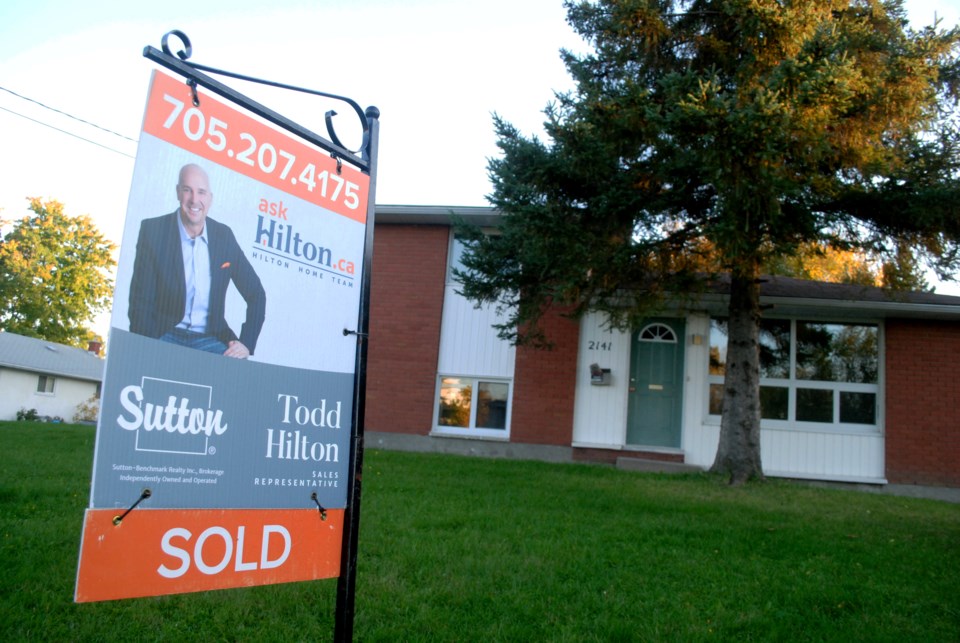A 14-unit affordable housing complex for seniors on Sparks Street and the divesting of 31 scattered single-family dwellings highlight Greater Sudbury Housing Corporation’s recent work.
The organization, which manages 1,829 rental units for the City of Greater Sudbury, hosted its annual general meeting at Tom Davies Square on May 10, during which they reported passing an independent audit with flying colours and continuing to inch forward on larger initiatives.
One of these efforts is the divesting of single-family dwellings, which they started work on last year with the sale of 19 units and continued this year by bringing the total number of units sold to 31.
The sale of these units has raised more than $10 million toward the organization’s capital reserves, city director of housing operations Barb Dubois told Sudbury.com after the meeting.
This fund allows projects to be completed “without impacting the tax levy, which is our goal,” housing services manager Cindi Briscoe added.
Some of this funding will go toward the 14-unit affordable housing complex at 1310 Sparks St., which recently reported cost-overruns of almost $1 million, which brought its new total cost to $6.3 million.
“If there’s costs for Lorraine Street or other projects that come forward, we have money in reserves to assist,” Dubois said, referencing the transitional housing complex of approximately 40 units expected to be built on Lorraine Street this year.
The shift away from larger family units toward single-bedroom units such as what are being built on Sparks Street is in keeping with a changing need in housing stock, wherein Briscoe noted that 70 per cent of their wait-list of almost 1,000 households are in need of one-bedroom units.
With their existing housing stock built between 1963 and 1978, the organization also report a number of shortcomings with their existing buildings and the need to renovate units.
“Our stock is older and it’s not fully accessible, and it’s hard to make our existing buildings fully accessible,” Dubois said.
The Sparks Street building, which is expected to break ground this year and open next summer, will be made accessible for its senior residents and include proper turning radiuses and hallway sizes to accommodate mobility devices. It will also be a passive house, which means various techniques will be used to ensure its associated energy costs are as low as possible.
A preliminary estimate has the building using 19,800 kilowatt hours of energy in a year, which is significantly less than the average building of its size, which uses 147,000 kilowatt hours.
At last update, the city’s transitional housing complex on Lorraine Street was expected to open by the end of the year, which Briscoe said remains a possibility due to the fact it’s planned as a modular build, which are constructed quickly.
Although the transitional housing complex and Sparks Street developments will offset the units lost through the sale of existing buildings, Dubois noted that the non-profit organization Raising The Roof-Chex Toit bought five of them and will put secondary units in them so each building has a three-bedroom unit upstairs and a two-bedroom unit downstairs.
The organization is partnering with Community Builders North and the city to maintain the units as affordable housing alongside offering vocational programming.
It’s a positive initiative that adds to the city’s affordable housing stock, Dubois said, adding that the Greater Sudbury Housing Corporation plans on hiring people through their vocational programming for various tasks such as grass-cutting.
A shortage of employees is the biggest challenge they face this year, she said, and will likely affect new builds.
Backlogs in the Landlord and Tenant Board system are also wreaking havoc by extending the timeline on evictions.
“There are challenges in having our hearings and getting outcomes we need from people who are causing us issues in some of our units – they aren’t paying, they aren’t moving, they’re having behavioural issues,” Dubois said, adding that the average wait time to get a hearing in these evictions is currently approximately six months, which is much longer than the six-week wait they’d anticipate pre-pandemic.
Tyler Clarke covers city hall and political affairs for Sudbury.com.
